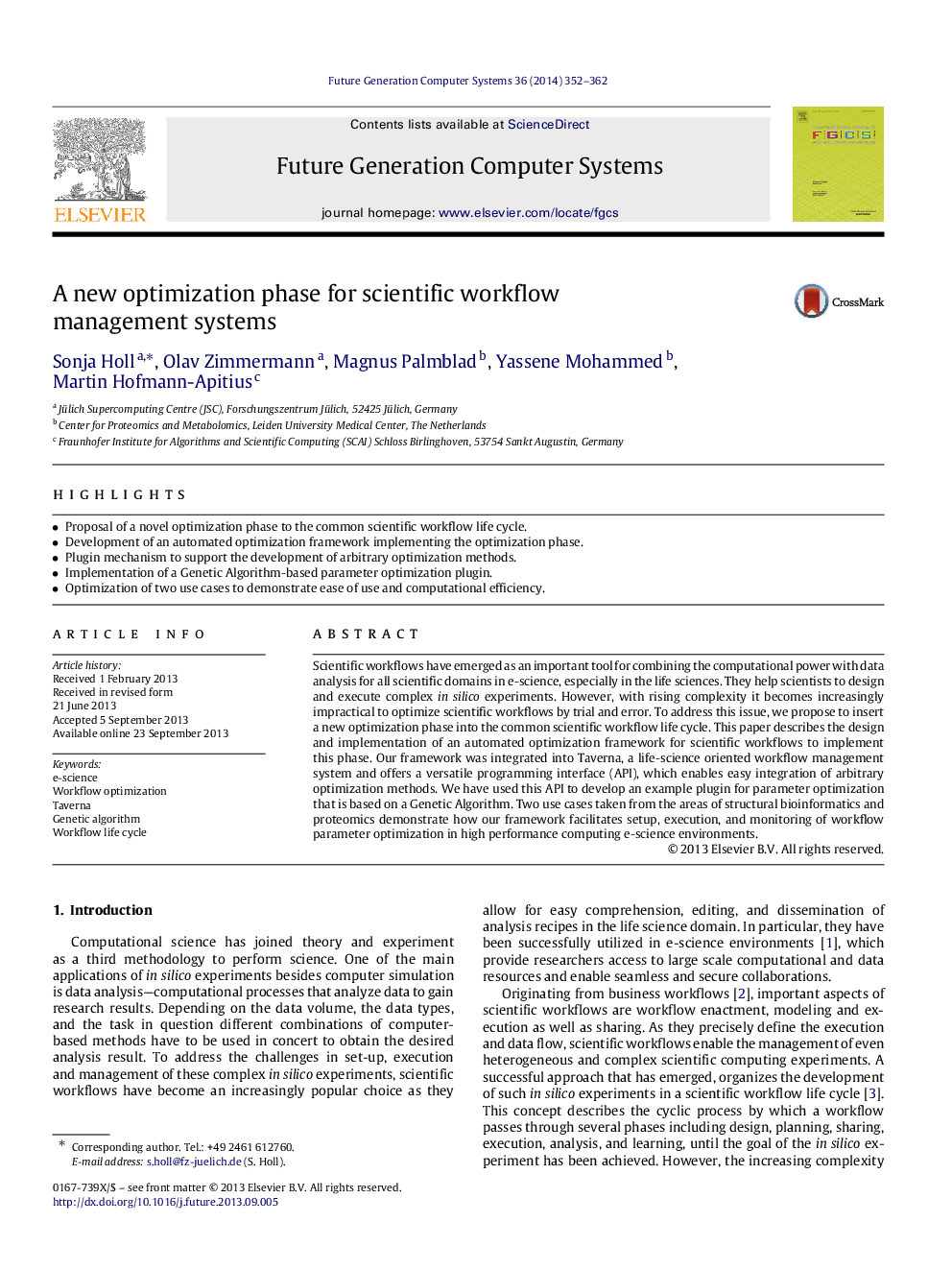| Article ID | Journal | Published Year | Pages | File Type |
|---|---|---|---|---|
| 425269 | Future Generation Computer Systems | 2014 | 11 Pages |
•Proposal of a novel optimization phase to the common scientific workflow life cycle.•Development of an automated optimization framework implementing the optimization phase.•Plugin mechanism to support the development of arbitrary optimization methods.•Implementation of a Genetic Algorithm-based parameter optimization plugin.•Optimization of two use cases to demonstrate ease of use and computational efficiency.
Scientific workflows have emerged as an important tool for combining the computational power with data analysis for all scientific domains in e-science, especially in the life sciences. They help scientists to design and execute complex in silico experiments. However, with rising complexity it becomes increasingly impractical to optimize scientific workflows by trial and error. To address this issue, we propose to insert a new optimization phase into the common scientific workflow life cycle. This paper describes the design and implementation of an automated optimization framework for scientific workflows to implement this phase. Our framework was integrated into Taverna, a life-science oriented workflow management system and offers a versatile programming interface (API), which enables easy integration of arbitrary optimization methods. We have used this API to develop an example plugin for parameter optimization that is based on a Genetic Algorithm. Two use cases taken from the areas of structural bioinformatics and proteomics demonstrate how our framework facilitates setup, execution, and monitoring of workflow parameter optimization in high performance computing e-science environments.
